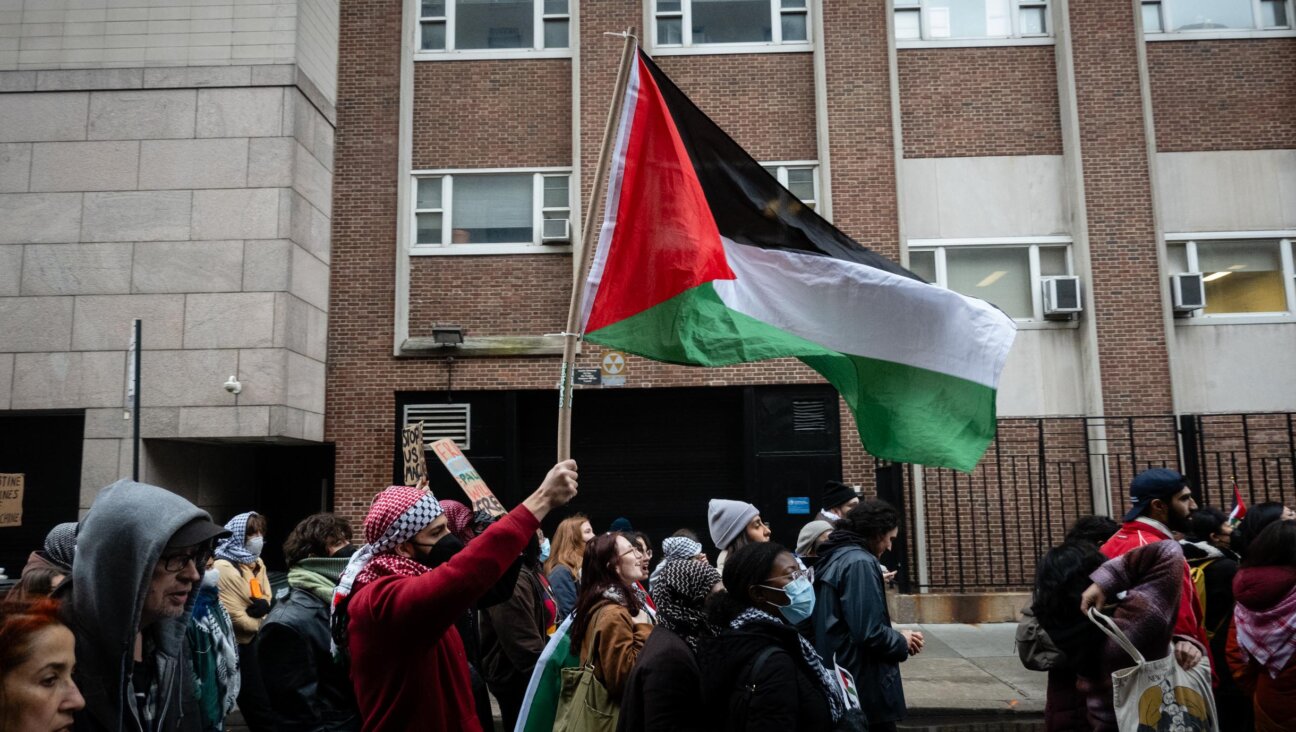Lessons of Tisha B’Av
The fast of Tisha B’Av, which falls on July 20 this year, is one of those odd calendar events that has no name of its own. The Hebrew words simply mean the ninth day of the month of Av. It marks the destruction of the Second Temple in Jerusalem by the legions of imperial Rome in the year 70 C.E. The moment looms so large in collective memory that, like the Fourth of July, it needs no explanation. Or, more to the point, like 9/11 — too horrible and too raw to jot down in a pocket calendar or stick on a refrigerator door.
This Tisha B’Av marks the 1,940th anniversary of the destruction. That was a very long time ago, and yet the event is still raw and brooding in Jewish memory. It was the worst thing that had ever happened to the Jewish people, and so it remained for nearly 19 centuries. For most of us, perhaps, more recent events have reframed the old questions of good and evil and changed the stakes. But the Jewish calendar has not fully caught up.
For all their distance, there’s nothing mysterious about the events of that long-ago summer day. A four-year Jewish uprising against Rome had left much of Judea in ruins. Jerusalem was besieged and starving. Inside the city walls, messianic zealots terrorized anyone who advocated negotiation, insisting that the entire city follow them to certain death. On the ninth of Av they got their wish. Historians called it a disastrous contempt for the realities of imperial power. The sages of the Talmud called it “baseless hatred.”
The consequences of the catastrophe are no mystery, either. In burning the Temple, the Roman legions abruptly ended the 1,000-year career of Judaism as a territorially bound sacrificial cult and launched it on its 2,000-year journey as an ethical code. It was a turning point in the career of the Jews, too, transforming them from a struggling nation into a powerless, scattered Diaspora.
Tisha B’Av was instituted years later as a day of mourning for the things that were lost, for the ruined Temple and the fallen kingdom. In time, though, it became something different: a day for lamenting all the wounds and humiliations of the dispersion, all rolled together. Hounded wherever they went, Jews lost sight of the difference between the persecution of a helpless minority and the defeat of an outmatched army. Jewish history was flattened, recast as a mythic tale of uninterrupted torment.
The mythical version of Tisha B’Av served for centuries to comfort a suffering people. Today it distracts us, obscures a changed reality. Jews are no longer helpless victims at the mercy of every mob or tyrant. In the sovereign state of Israel and in the affluent American Diaspora, Jews have the power to shape events around us. Like our ancestors back then, we have the freedom to use our power wisely or foolishly. We can choose to weigh our options soberly — or to plunge blindly forward and damn the consequences. Now, more than ever, Jews need to reclaim the real Tisha B’Av and learn its lessons.
The Forward is free to read, but it isn’t free to produce

I hope you appreciated this article. Before you go, I’d like to ask you to please support the Forward.
Now more than ever, American Jews need independent news they can trust, with reporting driven by truth, not ideology. We serve you, not any ideological agenda.
At a time when other newsrooms are closing or cutting back, the Forward has removed its paywall and invested additional resources to report on the ground from Israel and around the U.S. on the impact of the war, rising antisemitism and polarized discourse.
This is a great time to support independent Jewish journalism you rely on. Make a Passover gift today!
— Rachel Fishman Feddersen, Publisher and CEO
Most Popular
- 1

Opinion My Jewish moms group ousted me because I work for J Street. Is this what communal life has come to?
- 2

Fast Forward Suspected arsonist intended to beat Gov. Josh Shapiro with a sledgehammer, investigators say
- 3

Politics Meet America’s potential first Jewish second family: Josh Shapiro, Lori, and their 4 kids
- 4

Fast Forward How Coke’s Passover recipe sparked an antisemitic conspiracy theory
In Case You Missed It
-

Film & TV In ‘The Rehearsal’ season 2, is Nathan Fielder serious?
-

Fast Forward Pro-Israel groups called for Mohsen Mahdawi’s deportation. He was arrested at a citizenship interview.
-

News Student protesters being deported are not ‘martyrs and heroes,’ says former antisemitism envoy
-

Opinion This Nazi-era story shows why Trump won’t fix a terrifying deportation mistake
-
Shop the Forward Store
100% of profits support our journalism
Republish This Story
Please read before republishing
We’re happy to make this story available to republish for free, unless it originated with JTA, Haaretz or another publication (as indicated on the article) and as long as you follow our guidelines.
You must comply with the following:
- Credit the Forward
- Retain our pixel
- Preserve our canonical link in Google search
- Add a noindex tag in Google search
See our full guidelines for more information, and this guide for detail about canonical URLs.
To republish, copy the HTML by clicking on the yellow button to the right; it includes our tracking pixel, all paragraph styles and hyperlinks, the author byline and credit to the Forward. It does not include images; to avoid copyright violations, you must add them manually, following our guidelines. Please email us at [email protected], subject line “republish,” with any questions or to let us know what stories you’re picking up.















